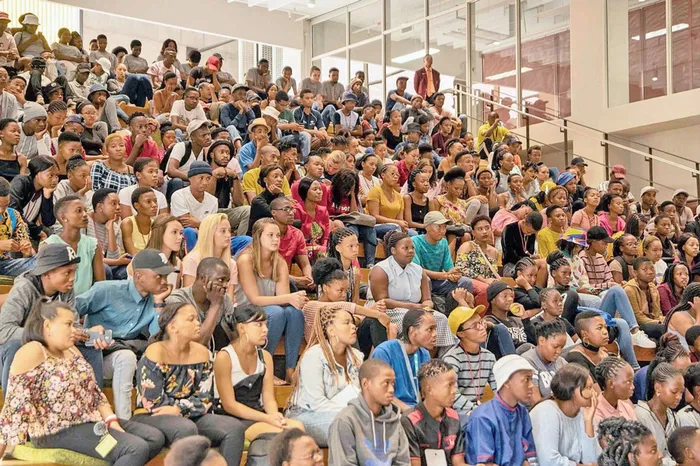SPU students to receive one meal per day, regardless of funding status

File picture: Supplied
SOL PLAATJE University (SPU) in Kimberley has agreed to provide all students with one daily meal at lunchtime, regardless of their funding status.
This follows a protest last week where tyres were set alight and roads were obstructed by students who said they were hungry and unable to concentrate on their studies.
The university’s student representative council demanded that all students be subsidised with at least two meals per day.
The acting director for institutional advancement in the office of the vice-chancellor at SPU, Kashini Maistry, said the university was sympathetic to the plight of the students.
“The proposal made to the council by the student representative council (SRC) for Sol Plaatje University to implement a subsidised food scheme for the remaining seven months of the 2024 academic year that would cover two meals for every registered student in a university-owned/managed residence, while retaining, where applicable, their National Student Financial Aid Scheme (NSFAS) allocations, is unfair and unconventional,” said Maistry.
She stated that the SPU Council approved a catering system in line with budget constraints as they were mindful of the implications that poor food security could have on students' academic progression.
Maistry indicated that students who received a food allowance from NSFAS or other funders would be expected to use their monthly stipend to purchase additional daily meals from the retail outlets on campus or in the surrounding area.
“Unfunded and vulnerable students have access to the various food security and social relief programmes on campus to supplement their nutritional requirements.”
She explained that subsidising lunch meals for students residing in university-owned/managed accommodation would result in a deficit of R8.62 million for the university in 2024.
“This is in comparison to the R24 million deficit that will be incurred should the SRC proposal of two subsidised meals be adopted. This is not financially sustainable.”
She said the fully outsourced catering model would be implemented in 2025.
“This will allow for a smooth transition, so students are therefore being given sufficient time to adjust to the new system.
“In addition, the university will undertake a due diligence exercise on the transition to self-catered residences and if it is deemed viable, preparations will be made accordingly for implementation in 2025.”
Maistry pointed out that it was normal practice for the higher education sector to charge students for all their meals.
“The concession being made by the SPU Council is particularly generous in light of the fact that SPU already heavily subsides its students by cross-subsidising the full cost of university-owned/managed residences, destitute students already receive one daily meal, the university subsidises the cost of catering personnel, the cost of laptops for first-year students is subsidised by 50 percent and the university provides a waiver of tuition costs for students who pass all their modules in minimum time.”
She indicated that as a champion of social justice, the university remained committed to supporting vulnerable and destitute students through its food security and social relief programmes.
“However, students who receive monthly living allowances or who are self-funded will be expected to manage their finances in a manner that does not lead to their future food insecurity.”